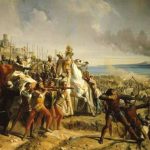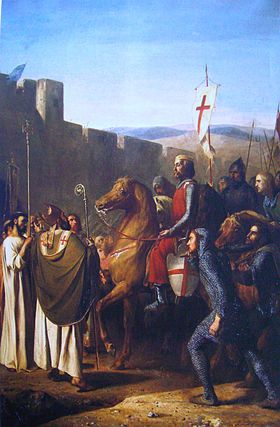
The First Crusade, prompted by the call to reclaim the Holy Land from Muslim control, culminated in the capture of Jerusalem by European knights led by Godfrey of Bouillon. The subsequent establishment of the Kingdom of Jerusalem marked the birth of a unique political entity, spanning parts of modern-day Israel and Palestine. The kingdom adopted a feudal system with a European aristocracy ruling over local populations, including Christians, Muslims, and Jews. This diverse populace created a complex cultural landscape, leading to religious and social interactions that were often marked by tensions but also moments of cooperation.
The kingdom faced numerous challenges, including a lack of resources and ongoing conflicts with neighboring Muslim states. Various crusader states were established in the region, including the County of Edessa, the Principality of Antioch, and the County of Tripoli, each striving to maintain their precarious hold on the territory. Diplomatic efforts, such as truces and alliances, were made with Muslim powers, leading to periods of relative stability. However, the constant threat of invasion and internal divisions weakened the kingdom’s defenses.
The Kingdom of Jerusalem’s decline was accelerated by internal strife and external pressures. The loss of key cities and strategic locations, coupled with inadequate support from Europe, eroded the kingdom’s strength. The fall of Jerusalem in 1187 to the Muslim commander Salah al-Din (Saladin) dealt a severe blow to the crusader presence in the Holy Land. Although subsequent efforts, such as the Third Crusade, temporarily reclaimed parts of the territory, Jerusalem remained under Muslim control.
Despite its relatively short existence, the Kingdom of Jerusalem left a lasting impact on history. The concept of crusading and the interactions between cultures in the Levant had long-lasting consequences for both the Christian and Muslim worlds. The experience of the crusades also influenced literature, art, and religious thought in Europe, leaving an indelible mark on the collective memory of the Western world.
In conclusion, the Kingdom of Jerusalem stands as a testament to the complexity of medieval interactions, religious fervor, and the clash of civilizations. Its establishment, challenges, and eventual decline highlight the intricacies of maintaining power in a diverse and contested region. While the kingdom may have fallen, its legacy continues to shape our understanding of historical dynamics, cultural exchange, and the enduring impact of religious zeal.
Please note that this is a synthesized article and might not be publication-ready without further editing and revision



















Add Comment